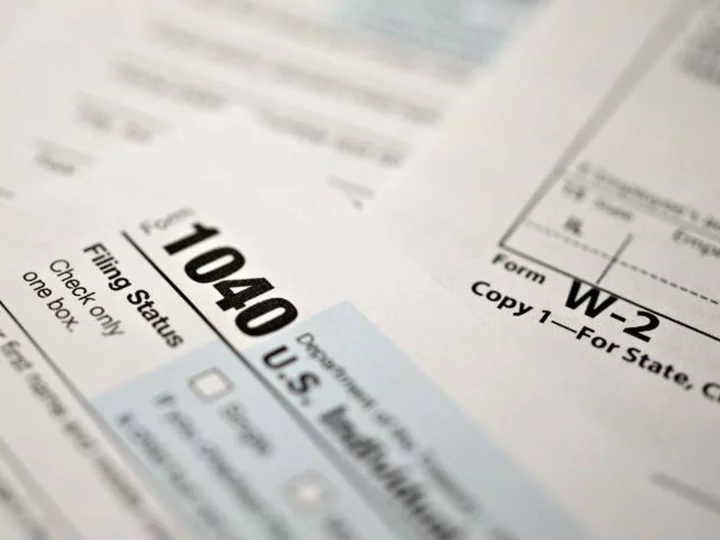If you forgot to file your taxes during the early days of the Covid-19 pandemic in 2020, you have until Monday to do so.
Nearly 1.5 million taxpayers may still be eligible for a tax refund from tax year 2019, according to the Internal Revenue Service. The agency estimates that almost $1.5 billion in refunds remain unclaimed.
By law, taxpayers normally have three years to file and claim their tax refunds. The original tax day in 2020 was delayed by 90 days due to the pandemic, so the usual three-year window has also been pushed back to July 17.
There is no penalty for filing late if a taxpayer is owed a refund, according to the IRS.
If taxpayers don't file in time, Treasury keeps the money.
How to file your 2019 federal tax return
The 2019 return must be filed on paper, rather than electronically, and be postmarked by July 17.
Tax year 2019 forms can be found online on the IRS Forms, Instructions and Publications page or by calling 800-TAX-FORM.
Taxpayers who can't find their 2019 income information may need to request a copy of their 2019 W-2 form from their employer or bank. They can also a request a wage and income transcript at IRS.gov using the Get Transcript Online tool.
How much money is at stake
The IRS estimates the average unclaimed refund for tax year 2019 amounts to $893.
"Many low- and moderate-income workers may be eligible for as much as $6,557 if their 2019 income qualifies them for the Earned Income Tax Credit (EITC)," per the agency. The tax credit is refundable, meaning that those who don't owe any tax can still receive a refund.
Some of these taxpayers may have chosen not to file because they didn't make enough money in 2019 to be required to file. They could still be owed a refund if they qualify for a refundable tax credit or excess tax was withheld from their paychecks.
But 2019 tax refunds may be withheld from taxpayers who have not filed for 2020 and 2021.
Also, "the refund will be applied to any amounts still owed to the IRS or a state tax agency and may be used to offset unpaid child support or past due federal debts, such as student loans," per the IRS.
Tax year 2019 did not include any pandemic stimulus payments, which were worth up to $1,400 and were delivered to people in 2020 and 2021.









